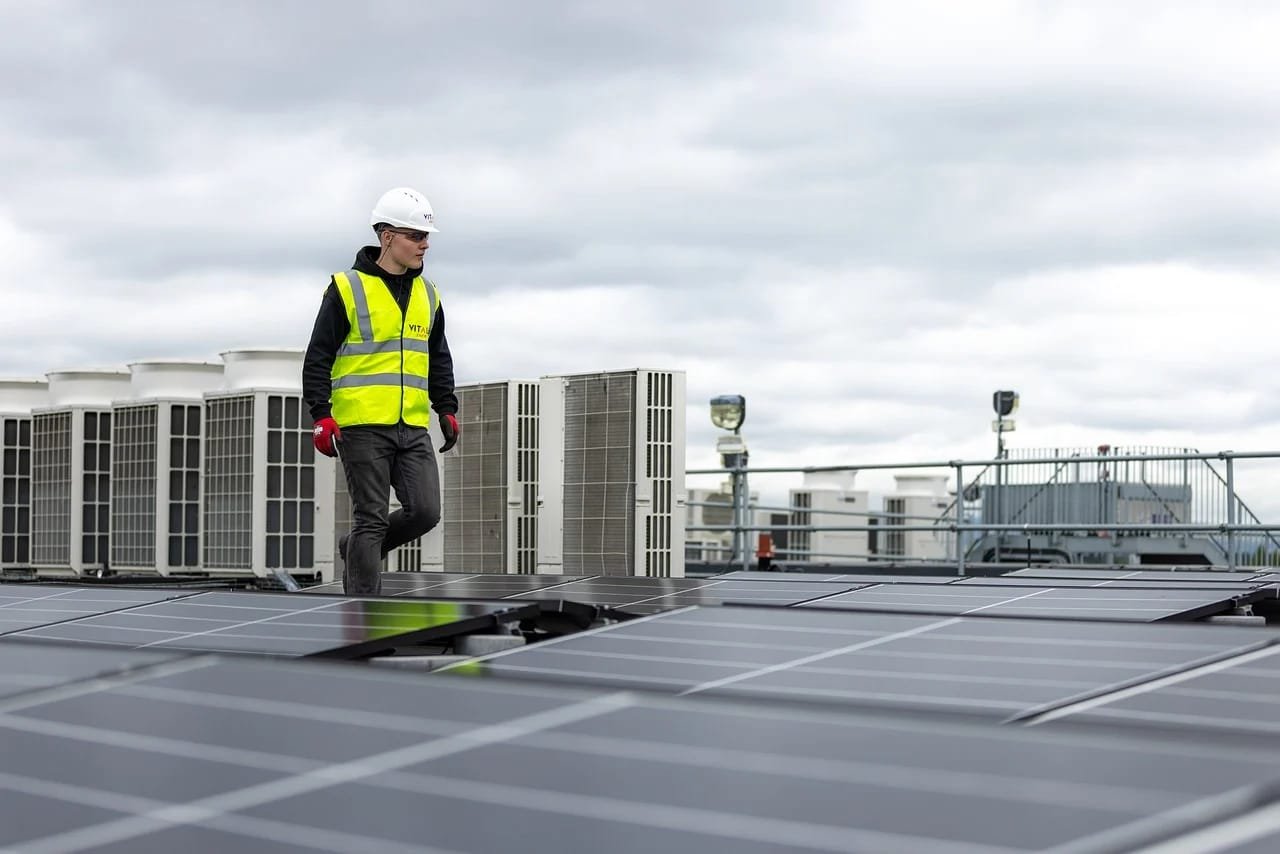Technology
The Impact of Solar Panels on Commercial Buildings

Solar panels are rapidly becoming a popular choice for commercial buildings as businesses seek ways to lower operational costs and adopt sustainable energy practices. By harnessing solar panels, a renewable power source, companies can reduce their dependence on traditional energy providers, which is critical as electricity costs continue to rise. Solar panels also help commercial buildings achieve significant long-term savings while contributing to a greener future. This article will explore how solar panels impact commercial buildings by reducing energy costs, improving environmental sustainability, and increasing overall property value.
Economic Benefits of Solar Panels for Commercial Buildings
One of the primary reasons businesses turn to solar panels is to save money on electricity. Commercial buildings consume vast amounts of energy, and solar panels provide an effective way to reduce energy bills. By generating their own electricity, companies can cut energy costs by up to 75%, depending on the size of the system and the building’s energy needs. In the UK, the government’s feed-in tariff schemes and renewable energy incentives further support businesses by offering financial benefits for generating clean energy through solar panels. This significantly improves the return on investment (ROI), typically within 5 to 10 years.
Environmental Impact and Corporate Social Responsibility
Solar panels play a vital role in reducing a company’s carbon footprint, a key component of corporate social responsibility. By switching to solar power, commercial buildings can decrease their reliance on fossil fuels, leading to a dramatic reduction in greenhouse gas emissions. In an age where customers and clients are increasingly eco-conscious, companies using solar panels can enhance their public image and attract more business. Solar panels are also a great way for companies to contribute to the UK’s national sustainability goals, helping reduce the overall environmental impact of the commercial sector.
Operational Advantages of Solar Power for Commercial Buildings
Solar panels provide commercial buildings with several operational advantages, the most significant being energy independence. By producing their own electricity, businesses can become less reliant on the national grid and avoid the risks associated with energy price fluctuations. This stability is particularly valuable for industries where energy costs represent a major operational expense, such as manufacturing or technology companies. Furthermore, solar panels are low-maintenance, typically requiring only occasional cleaning and inspection to ensure they operate efficiently. With a lifespan of 25 to 30 years, solar panels provide a long-term energy solution that keeps operational costs low for decades.
Impact on Property Value and Marketability
Installing solar panels can significantly enhance the value of a commercial property. In the UK, the demand for energy-efficient buildings is on the rise, especially among businesses that prioritise sustainability. Buildings equipped with solar panels are viewed as premium properties because they offer lower running costs, which can be a deciding factor for tenants and buyers. Moreover, solar panels can make a commercial property more attractive to potential tenants who seek eco-friendly workspaces. In a competitive real estate market, solar panels serve as a unique selling point, increasing the marketability of the building and reducing the likelihood of vacancies.
Challenges of Implementing Solar Panels on Commercial Buildings
Despite the many advantages, there are some challenges to installing solar panels on commercial buildings. The initial investment can be substantial, especially for larger systems required by energy-intensive businesses. Although solar panels pay for themselves over time, the upfront costs may be a barrier for some companies. However, various financing options such as green loans or solar leases can help mitigate this concern. Another challenge is the structural suitability of older commercial buildings. In some cases, roof reinforcements may be necessary to support the weight of solar panels, adding to the overall installation cost.
Legal and Regulatory Considerations
Commercial buildings looking to install solar panels in the UK must comply with specific legal and regulatory frameworks. Local planning permissions may be required, depending on the size and placement of the solar panels. Building regulations also need to be met to ensure that installations are safe and in line with national energy policies. For companies considering solar panels, it is essential to engage with local authorities and energy experts to navigate these requirements smoothly. Additionally, businesses can sell excess energy back to the grid under the Smart Export Guarantee (SEG) scheme, creating another potential revenue stream from their solar installations.
To Summarise
In conclusion, the impact of solar panels on commercial buildings in the UK is multifaceted. They provide substantial economic benefits by lowering energy costs, enhance environmental sustainability by reducing carbon emissions, and increase the overall value and marketability of commercial properties. Solar panels also offer businesses energy independence, protecting them from volatile electricity prices and supply disruptions. Although challenges like high installation costs and regulatory hurdles exist, the long-term savings and environmental benefits make solar panels a smart investment for many commercial buildings. As the UK continues to transition toward renewable energy, solar panels will play an increasingly significant role in shaping the future of commercial real estate. Commercial property owners should explore the financial incentives, long-term savings, and environmental advantages of investing in solar panels today to future-proof their operations.
Also Read: AI Gaming Trends to Watch in 2025
-

 Celebrity11 months ago
Celebrity11 months agoWho Is Mallory Plotnik?: The Untold Story of Phil Wickham’s Wife
-

 Celebrity10 months ago
Celebrity10 months agoWho Is Allison Butler?: The Life and Influence of Kirk Herbstreit Wife
-

 Celebrity10 months ago
Celebrity10 months agoMeet Christina Erika Carandini Lee?: All You Need To Know Christopher Lee’s Daughter
-

 Celebrity10 months ago
Celebrity10 months agoWho Is Rebecca Sneed?: All You Need To Know About Lyle Menendez’s Wife
















